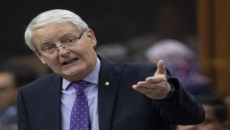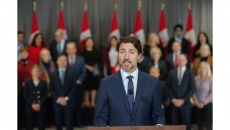Chinese tech executive Meng Wanzhou is back in British Columbia Supreme Court as her lawyers seek to ease bail conditions for the Huawei chief financial officer.
Speaking English and aided by an interpreter, her husband Liu Xiaozong testified he believes Meng is at increased risk of contracting COVID-19 given her proximity to multiple security personnel whenever she leaves home.
He says his wife is a survivor of thyroid cancer and has hypertension, while their daughter and her son are afraid of being publicly identified during visits to Vancouver due to the presence of private security.
Her lawyers want her to be allowed out of her house without her security detail and outside the hours of her curfew, which starts at 11 p.m. and runs until 6 a.m.
She wears an electronic monitoring device and is limited to visiting certain parts of Vancouver, excluding the airport where she was arrested in December 2018 on a request by the United States.
Meng is facing extradition to the United States over fraud charges based on allegations that both she and the company deny.
U.S. officials allege Meng misrepresented Huawei’s business dealings in Iran, putting HSBC bank at risk of violating U.S. sanctions against that country.
Meng’s lawyers introduced a new branch of argument last month in support of their claim that she was subjected to abuse of process and should be freed.
In a notice of application filed with the B.C. Supreme Court, her defence team claims international law does not allow a government to criminalize the conduct of someone who isn't a citizen outside its own jurisdiction where there is no genuine connection to that country.
Her lawyers say HSBC is incorporated in the United Kingdom, Meng is a Chinese national and the alleged fraud took place in Hong Kong, so the United States is trying to assert jurisdiction where it doesn't exist.
Meng’s lawyers have previously outlined three other branches of argument they’re set to make in the coming months.
They allege Meng’s arrest was unlawful, that U.S. authorities misrepresented its case against her to their Canadian counterparts and that Meng was used as a political pawn by U.S. President Donald Trump.






